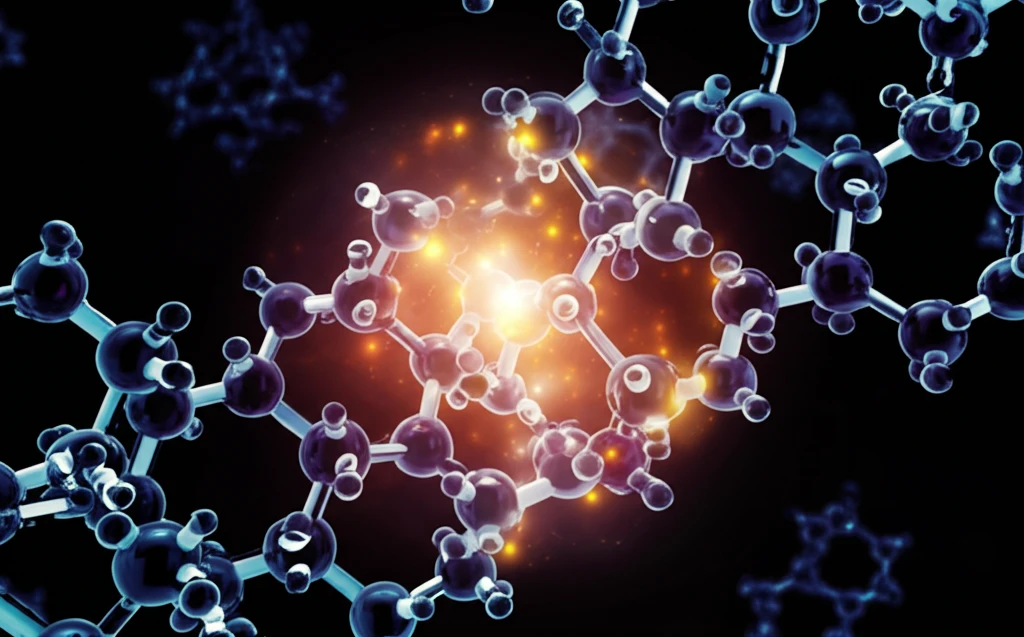
Decoding Catalysis: How Scientists are Revolutionizing Chemical Reactions
"A deep dive into the world of catalysis, exploring how researchers are manipulating chemical reactions to create a more sustainable and efficient future."
In our modern world, virtually every manufactured product, from the fuels that power our cars to the plastics that make up our everyday gadgets, relies on chemical reactions. However, many of these reactions are slow, inefficient, and require high temperatures or pressures, making them energy-intensive and environmentally unfriendly. This is where catalysis comes into play.
Catalysis is the process of accelerating a chemical reaction by adding a substance known as a catalyst, which is not consumed in the reaction itself. Catalysts work by providing an alternative reaction pathway with a lower activation energy, effectively speeding up the reaction. Catalysis is not a new concept, but ongoing advancements in understanding and manipulating catalytic processes are opening up exciting new possibilities across various industries.
Imagine a world where fuels are created with minimal energy waste, pharmaceuticals are manufactured with greater efficiency, and pollution is significantly reduced. This is the promise of modern catalysis research. By understanding how catalysts work at a molecular level, scientists are designing new and improved catalysts that are more efficient, selective, and sustainable.
The Power of Catalysis: Transforming Industries

Catalysis touches nearly every aspect of our lives, playing a critical role in numerous industrial processes. A significant application is in the production of fuels and chemicals. For example, catalytic converters in vehicles use catalysts like platinum, palladium, and rhodium to convert harmful pollutants such as carbon monoxide, nitrogen oxides, and hydrocarbons into less harmful substances like carbon dioxide, nitrogen, and water. Refineries rely heavily on catalysis to convert crude oil into gasoline, diesel, and other valuable products. Zeolites, a class of aluminosilicate minerals, are used as catalysts in cracking and isomerization processes to optimize fuel production.
- Fuel and Chemical Production: Catalysts enhance the efficiency of converting raw materials into fuels and valuable chemicals.
- Pharmaceuticals: Catalysis enables the synthesis of complex drug molecules with high precision.
- Environmental Protection: Catalytic converters reduce harmful emissions from vehicles and industrial processes.
- Sustainable Chemistry: Development of catalysts for greener and more sustainable chemical processes.
The Future of Catalysis: A World Transformed
The field of catalysis is rapidly evolving, driven by advances in computational modeling, materials science, and nanotechnology. By combining these powerful tools, researchers are gaining unprecedented control over catalytic processes. This includes designing catalysts with atomic precision, tailoring their properties to specific reactions, and optimizing reaction conditions for maximum efficiency. The ongoing revolution in catalysis holds the potential to transform industries, create a more sustainable future, and address some of the world's most pressing challenges. As we continue to unlock the secrets of catalysis, we can look forward to a world powered by cleaner energy, more efficient manufacturing processes, and innovative solutions for a healthier planet.
